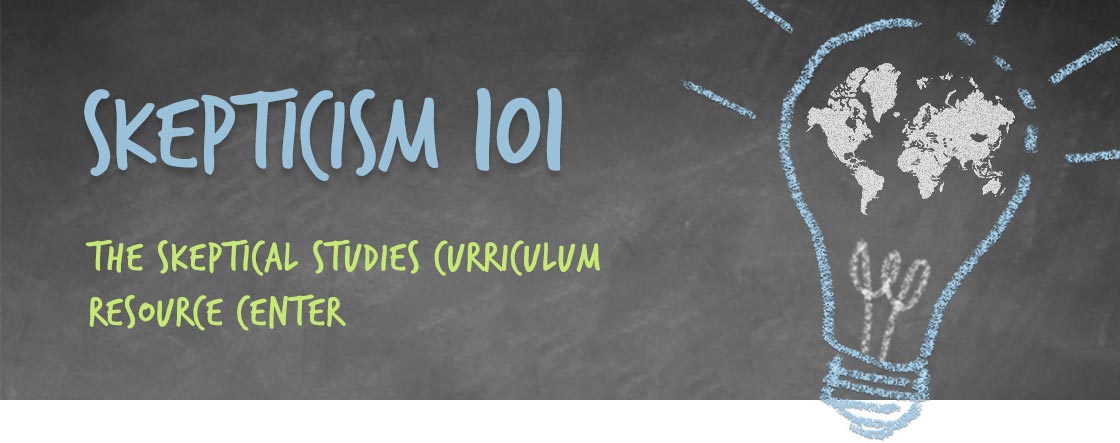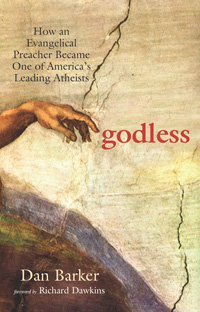You Are Browsing Resources
for the Academic Discipline of:
religious studies and/or theology
In this video — the sixth in our witty and satirical “Skeptic Presents” series, Michael Shermer interviews Pope Francis.
If you missed our first five videos, check them out.
Help Us Make More Videos
If you would like to show your support for these videos, please make a tax-deductible donation to the Skeptics Society. With your support, we hope to produce these instructional, educational, and entertaining videos regularly throughout the year for free viewing and use by everyone everywhere to spread the message of the power of science and skepticism to make the world a saner, safer place.
CREDITS: Special thanks to David Cowan, Daniel Mendez, and Jim Robinson for their support in launching this series of Skeptic videos.
Written and Produced by: Brian Keith Dalton, Michael Shermer, Pat Linse, Jennifer Shermer Directed, lensed, and edited by: Brian Keith Dalton. Executive Producers: David Cowan, Daniel Mendez, Jim Robinson. Starring: Michael Shermer, Brian Keith Dalton. Music by Final Cut Pro. Shot on a Canon C100.
This book was required reading for Dr. Innes Mitchell’s course, “Perspectives on Atheism” taught at St. Edwards University during spring 2012.
Conversions on the road to Damascus are for those who hear voices and fall prey to delusions and who would be better off seeking professional help. Much more valuable in the human story are the reflections of intelligent and ethical people who listen to the voice of reason and who allow it to vanquish bigotry and superstition. This book is a classic example of the latter. —Christopher Hitchens
My kids are in the process of learning about literature, and a rule of thumb they’ve picked up concerns how to recognize the protagonist of a Story: it’s the character who undergoes the greatest transformation. This makes sense, because one of the hardest things we confront is the need to change. By this criterion, in the enormous story of what we all do with our lives, Dan Barker is one of the most interesting and brave protagonists I know. Godless is a fascinating memoir, a tour of one distressing extreme of religiosity, a handbook for debunking theism. But most of all, it is a moving testimonial to one man’s emotional and intellectual rigor in acclaiming critical thinking.—Robert Sapolsky
BUY THIS BOOK
from Amazon
This PowerPoint is part of a course titled, “Perspectives on Atheism“.
This presentation opens with criticism of the Catholic Church in popular narratives, before a discussion of the televised IQ2 Debate—“Motion: The Catholic Church is a force for good in the world.” Based largely on the work of English Historian, David Ranan, three historical landmarks of Church power are examined, including (1) The Trial of Galileo (Inquisition); (2) The Holocaust (Anti-Semitism); and (3) The Child Abuse Scandal. The presentation concludes by addressing the recent political activism of the Catholic Church opposing same-sex marriage and contraception.
DOWNLOAD THIS RESOURCE
(143 MB Powerpoint Presentation)
This PowerPoint is part of a course titled, “Perspectives on Atheism“.
This presentation introduces students to three schools of thought in the “Historical Jesus Debate”: (1) Christ-Myth Theory (Mythicists); (2) Criteria of Double Dissimilarity (Historicists); and (3) Christian Apologetics. The Gospel and Pauline accounts of Jesus are compared and contrasted, and the theory of Jesus as a character-type based on precursor dying-and-rising gods is addressed. The presentation concludes by examining implications of the Historical Jesus Debate.
DOWNLOAD THIS RESOURCE
(87 MB Powerpoint Presentation)
This PowerPoint presentation emphasizes the need to counteract false stereotypes about atheists and provides reasons why atheists and liberal religious persons should work together for the common-good. It contains demographics of religion and unbelief in America and encourages religious persons to reevaluate how they understand atheism. This PowerPoint was used for an in-class presentation (in TEDTalk format) to promote inter-faith and atheist dialogue. This presentation was created by Kile Jones for Dr. Michael Shermer’s course, “Evolution, Economics & the Brain” taught at Claremont Graduate University during the spring 2012 semester.
DOWNLOAD THIS RESOURCE
(1.8 MB Powerpoint Presentation)
This course was taught at St. Edwards University in spring 2012.
Excerpt from Syllabus
American mythology claims the United States is a Christian nation, increasingly accepting of all denominations and faiths. What about non-belief? Should atheism be written into, and become part of the American story? Has it already? From a rhetorical perspective this course will address a variety of related questions:
- What are the narratives of atheism? Whose voices tell the stories and what are their interests?
- What are the arguments for atheism?
- How is atheism framed, both positively and negatively?
- Why has “New Atheism” appeared recently as a social movement? What are the aspirations of the movement, the strategies used for altering perspectives, and who are their audiences?
This course will examine four different perspectives from which to view these issues:
- The personal perspective of “Letting Go of God”
- The critical perspective taking religion as its object
- The social perspective examining secularism in a free society
- The ethical perspective addressing the tenets of secular humanism.
There is an alternative American myth claiming the United States is a beacon of Liberty, carrying the torch of progressive values, scientific endeavor, and human rights ignited by the Enlightenment. Which American myth appeals to us? This overarching question will guide our journey.
DOWNLOAD THIS RESOURCE
(420 kb PDF)
What is a cult? What is the difference between a cult and a religion? Who joins cults and why? What are the social, cultural, and psychological reasons that people join cults? In this lecture Dr. Shermer presents research from sociologists and psychologists to attempt to answer these questions, while examining several examples of cults from recent history and when and why they can be dangerous.
DOWNLOAD THIS RESOURCE
(105 MB Powerpoint Presentation)
The Origins of Morality and How to be Good Without God
In The Science of Good and Evil, a lecture based on the third volume in his trilogy on the power of belief, Dr. Shermer tackles two of the deepest and most challenging problems of our age: (1) The origins of morality and (2) the foundations of ethics. Does evil exist, and if so, what is the nature of evil? Is it in our nature to be moral, immoral, or amoral? If we evolved by natural forces then what was the natural purpose of morality? If we live in a determined universe, then how can we make free moral choices? Why do bad things happen to good people? Is there justice in the world beyond the social order? If there is no outside source to validate moral principles, does anything go? Can we be good without God? In this stunning conclusion to an intellectual journey into the mind and soul of humanity, Dr. Shermer peels back the inner layers covering our core being to reveal a complexity of human motives—selfish and selfless, cooperative and competitive, virtue and vice, good and evil, moral and immoral—and how these motives came into being as a product of both our evolutionary heritage and cultural history, and how we can construct an ethical system that generates a morality that is neither dogmatically absolute nor irrationally relative, a rational morality for an age of science.
DOWNLOAD THIS RESOURCE
(69 MB Powerpoint Presentation)
Any Sufficiently Advanced Extraterrestrial Intelligence is Indistinguishable from God
In this brief lecture, Dr. Shermer demonstrates why the Intelligent Design creationists’ and theologians’ search for a designer god can only result in the discovery of an extraterrestrial intelligence; one with such power that it can create life, planets, stars, and even universes. As Dr. Shermer states, “Any sufficiently advanced extraterrestrial intelligence is indistinguishable from God.” In this lecture Dr. Shermer also discusses the potential trajectory of our own technological advancements.
DOWNLOAD THIS RESOURCE
(18 MB Powerpoint Presentation)










